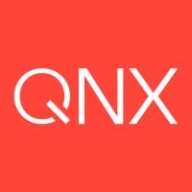

Kali Linux and QNX Neutrino compete in the realm of operating systems. Kali Linux seems to have an upper hand in cybersecurity due to its specialized tools, while QNX Neutrino stands out for its reliability in embedded systems.
Features: Kali Linux provides a vast suite of penetration testing tools, security auditing capabilities, and flexible customization, making it invaluable for cybersecurity professionals. QNX Neutrino offers a reliable real-time operating environment, scalability for varied applications, and a microkernel architecture enhancing performance and stability in critical systems.
Ease of Deployment and Customer Service: Kali Linux is easy to deploy with comprehensive documentation aiding independent setups. QNX Neutrino requires more specialized support due to its complex applications but offers dedicated customer service for tailored assistance, balancing its complexity with excellent support.
Pricing and ROI: Kali Linux is open-source, which minimizes setup costs and offers a strong cost-benefit ratio for budget-conscious operations in need of security. QNX Neutrino involves higher initial investments; however, its reliability and advantages in industry-specific applications justify the cost with enhanced efficiencies and less downtime.

Kali Linux is widely used by organizations for penetration testing, vulnerability assessments, web application security, network audits, ethical hacking, and open-source intelligence, providing extensive free features.
Organizations run Kali Linux in virtualized environments alongside other operating systems, employing tools for automated scans, malware identification, infrastructure testing, and application development or hosting. These users benefit from lower maintenance requirements and a smaller footprint. The toolset includes Nmap, SQLMap, Metasploit, and Hydra, ensuring effective security assessments. Its high scalability, performance, user-friendly interface, and extensive documentation enhance the platform's usability. Known for stability, flexibility, and virus resistance, Kali Linux supports web security, troubleshooting, and configuration tasks comprehensively.
What are the most important features of Kali Linux?
What benefits and ROI should users look for in reviews?
Kali Linux can support industries in improving security through stable and flexible environments that resist viruses and provide extensive documentation. Users employ it for web security, troubleshooting, and configuring capabilities. Necessary improvements include automation, user-friendliness, and integrating AI and blockchain. Enhancements in security features, faster installations, and better learning tools are also essential. Machine learning integration and non-enterprise user functionalities can address current limitations.
QNX Neutrino, a real-time operating system from BlackBerry, delivers robust performance for embedded systems across industries like automotive, aerospace, and telecommunications.
QNX Neutrino is designed for high-performance embedded applications, providing deterministic responses that are essential in systems where timing is critical. Its microkernel architecture ensures maximum security and reliability, making it a trusted choice for developing safety-critical applications. QNX Neutrino's ability to support multitasking and asymmetrical processing adds flexibility, supporting resource utilization across different hardware environments.
What are the key features of QNX Neutrino?
What benefits should users look for in reviews?
In industries like automotive, QNX Neutrino powers complex systems such as Advanced Driver Assistance Systems, ensuring real-time data processing for enhanced safety. In aerospace, it supports flight control systems where reliability and timing precision are crucial. Telecommunications benefit from its scalability and fault resilience, enabling robust network infrastructure.
We monitor all Operating Systems (OS) for Business reviews to prevent fraudulent reviews and keep review quality high. We do not post reviews by company employees or direct competitors. We validate each review for authenticity via cross-reference with LinkedIn, and personal follow-up with the reviewer when necessary.